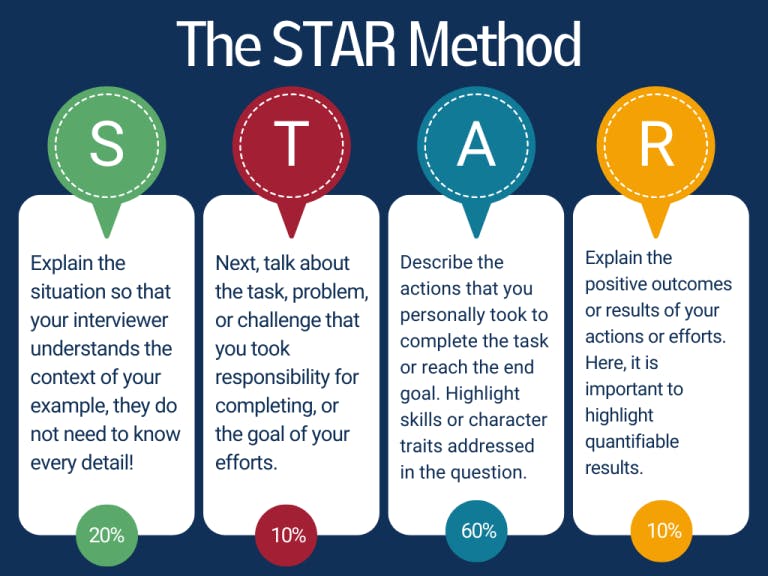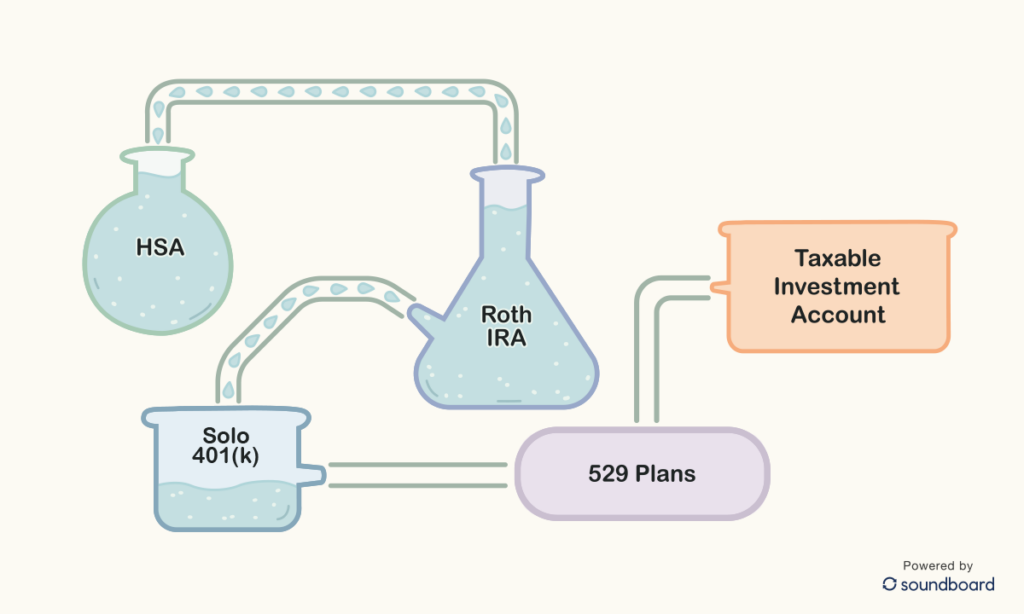1. Research what you're applying for
Get familiar with the organization and role you’re interested in. Researching the culture, mission, and values of the school or company that you are interested in will provide insights into your potential fit at that school or for that job. Review the job description and organizational values carefully; prepare stories that illustrate how your values, skills, and experiences align with what you’re applying for. Demonstrate how you are a great fit by showcasing the key aspects of what they are looking for. If you are really trying to take it to the next level, you can even use the phrases and common terms the organization uses to show that you did your homework.
Pro tip: Don’t be afraid to reach out to past or current students or employees to hear their individual experiences and get a better sense of the types of people at the organization.
2. Prepare for common interview questions
Providing structured, organized, and concise responses helps you come across more confidently. Cover the basics by preparing for common behavioral interview questions. For some, you may find the STAR Method (Situation, Task, Action, Result) technique helpful in structuring your answers. Make sure to provide specific examples about experience and keep them relevant to the specific question that was asked.

3. Practice, practice, practice
Practice is one of the most important parts of preparing for an interview. With practice, you can try out different ways of answering common questions until you are happy with the response. You could practice answering them out loud in front of a mirror or even set up a mock interview with a friend or colleague.
Pro tip: Consider using tools like Chat GPT or Google’s Mock Interview Warmup to help you prepare for your interview!
4. Arrive early and with enthusiasm!
5. Treat it like a conversation, and be authentic
An interview is a two-way street; while your interviewer is evaluating your fit for the role, you should also be interviewing them to see if the organization and role are a good match for you. Prepare a few questions to ask beforehand to show you’ve done your homework and to learn more about the role. Remember, you also need to decide if this is a good fit for you.
Treat it like a conversation, and remember that your interviewer is a person, too (and may even also be nervous!). Researching the interviewer and establishing a rapport with them will help you make a lasting impression. Always start with a big, enthusiastic smile. Be your true authentic self throughout the conversation, and let your interest and personality shine.
6. Follow Up After Your Interview
Do not forget this!!! Sending a personalized thank you email to your interviewer can go a long way toward differentiating you from others. Following up is a great way of reiterating your interest in the position. In the thank you note, reference specific topics you discussed during your interview, showing that you paid attention, and care about what they had to say. If possible, do your best to send it within 24 to 48 hours after the interview.
Yes, interviewing can be stressful and nerve-wracking and everything in between but know that it does get easier with time and practice. With these tips and tricks, you’ll be acing your next interview in no time. Good luck! If we can help, reach out!

